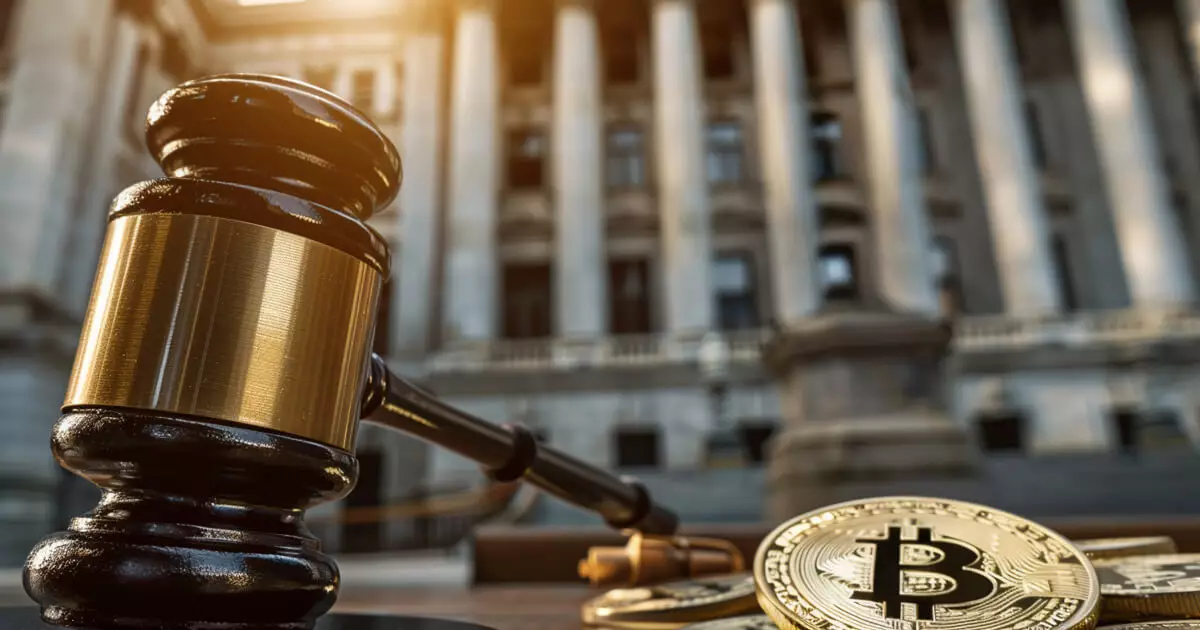In an era where digital currencies are reshaping financial landscapes, the Satoshi Action Fund has emerged as a critical player advocating for the preservation of Bitcoin self-custody rights at the state level. By paralleling strategies honed by the cannabis sector to find loopholes and protections within federal regulations, this initiative aims to create what they term “safe haven” states. Such jurisdictions would provide legal frameworks that guarantee individuals the right to control their digital assets without undue interference from federal authorities.
The Precedence of State Law
Key to the Satoshi Action Fund’s mission is the assertion that, in the absence of federal intervention, state laws can offer a refuge for Bitcoin enthusiasts. Dennis Porter, the organization’s CEO, asserts that when federal and state laws conflict, federal enforcement cannot compel local law enforcement to act against state statutes. This perspective is rooted in a desire to push forward with Bitcoin regulations in real-time, rather than remain stagnant while awaiting federal legislation—something Porter warns could hinder progress for decades.
His perspective draws historical parallels with various social movements that began at the state level. Just as early proponents of women’s suffrage and civil rights mobilized locally before gaining federal traction, Porter believes that a strong showing at the state level can instigate federal acknowledgment and action on Bitcoin regulations.
Caution from Legal Experts
Despite an optimistic outlook from Porter and his colleagues, legal experts like Joe Carlasare express caution regarding the feasibility and impact of state-level laws. Carlasare emphasizes that the federal legal framework is generally superior to state laws, meaning that any state initiative could be rendered moot if the federal government chooses to assert dominance. He points out the crucial distinction that while cannabis may thrive in a grey legal market due to lax enforcement practices, the same conditions do not necessarily exist for Bitcoin self-custody rights.
Carlasare’s critique underscores the precariousness of the situation: “It doesn’t matter what laws a state passes if the Feds decide to preempt it.” This reality poses significant challenges for the Satoshi Action Fund’s ambitions and highlights the inherent risks associated with a state-level only approach.
Despite skepticism surrounding the efficacy of state actions alone, notable developments have occurred. Pennsylvania recently passed House Bill 2481, commonly referred to as the “Bitcoin Rights” bill, signaling a significant move towards the protection of residents’ rights to manage their digital assets. This bipartisan effort received overwhelming support in the House, suggesting a shared recognition of the necessity for clear regulations regarding cryptocurrency and digital asset transactions.
If the bill passes in the Senate, Pennsylvania could position itself as a pioneer in the crypto landscape, potentially setting a template for neighboring states. Its significance is amplified by the fact that Pennsylvania is a pivotal swing state, home to approximately 1.5 million crypto owners. Consequently, any legal framework established there could resonate beyond state borders, encouraging other regions to implement similar protective measures.
The activity in states like Pennsylvania reflects a burgeoning movement towards establishing legal protections for Bitcoin enthusiasts. As federal authorities grapple with the complexities of regulating digital assets, the drive from states could serve to put pressure on Washington to act more decisively. Groups aligned with the Satoshi Action Fund believe that sustained advocacy and legislative success at the state level could prompt a more cohesive nationwide approach to cryptocurrency regulation.
However, the future landscape of Bitcoin governance remains uncertain. While the Satoshi Action Fund’s ambitions reveal a proactive mindset, they are also emblematic of the complexities at play in the intersection of digital currencies and law. The outcomes of these initiatives are yet to be determined but may well foster a reexamination of how cryptocurrencies are treated federally and could significantly influence the direction of regulation across the United States.
The efforts of the Satoshi Action Fund and similar organizations underscore the vital role states may play in shaping the future of Bitcoin self-custody rights. While there is cautious optimism rooted in historical precedent, there are also substantial legal hurdles that could impede progress. The balance between federal authority and state rights will be pivotal in determining how effectively Bitcoin enthusiasts can safeguard their assets in this evolving digital age.
















Leave a Reply